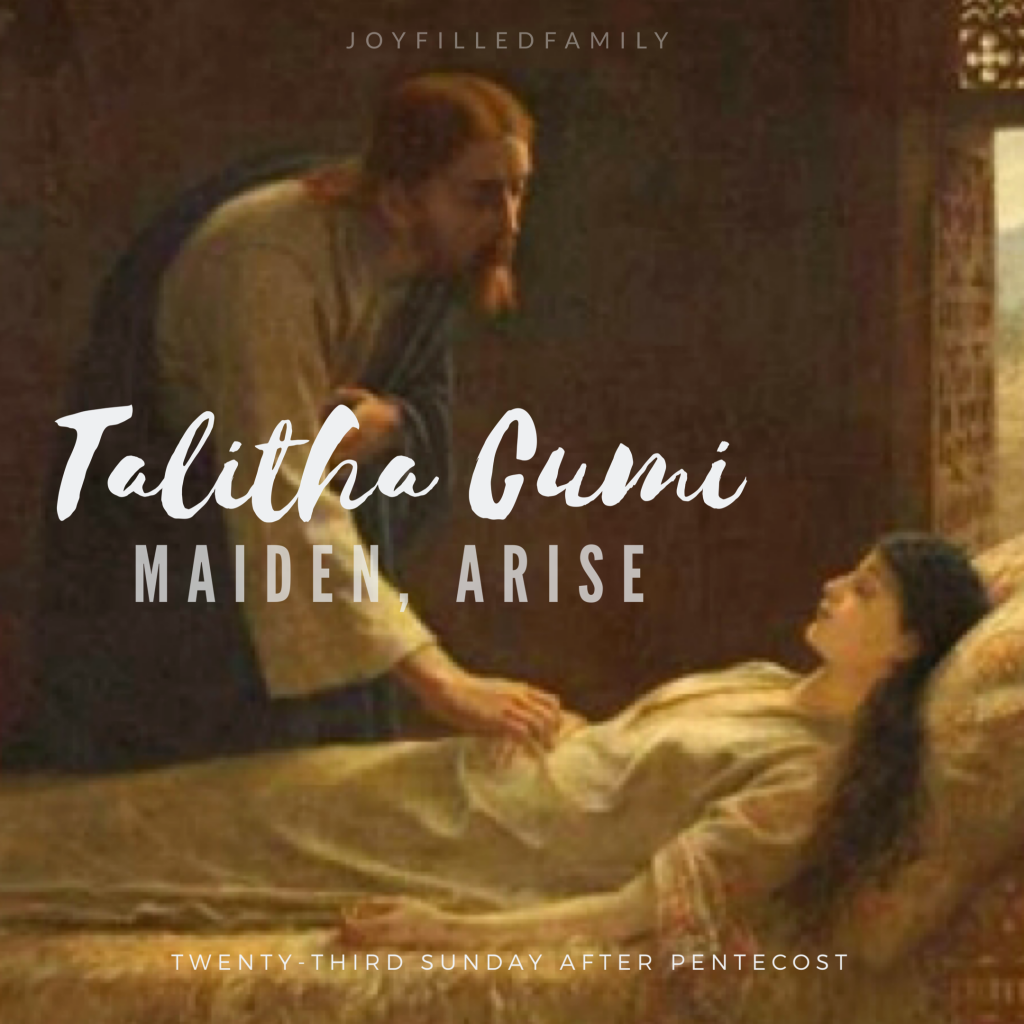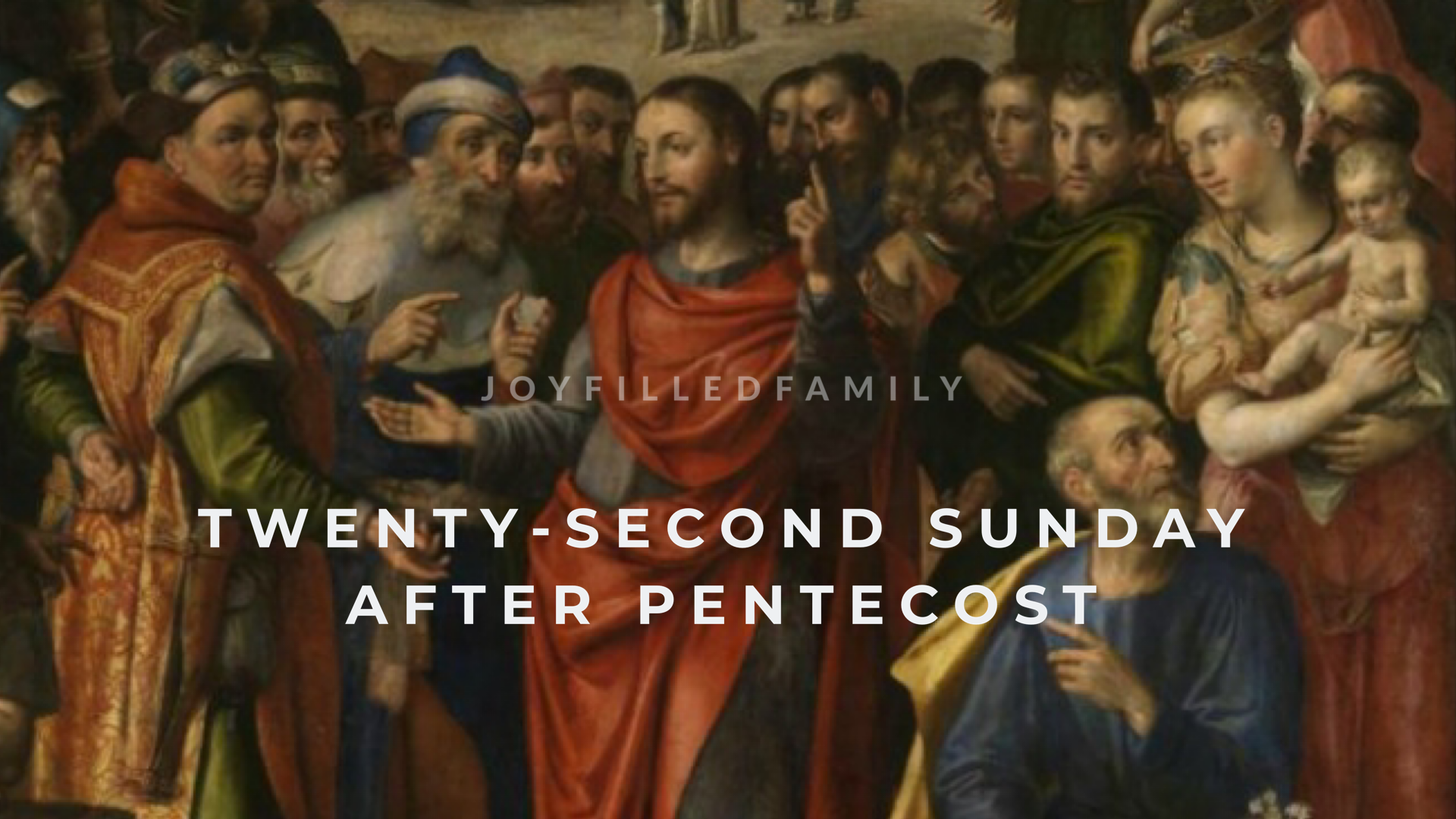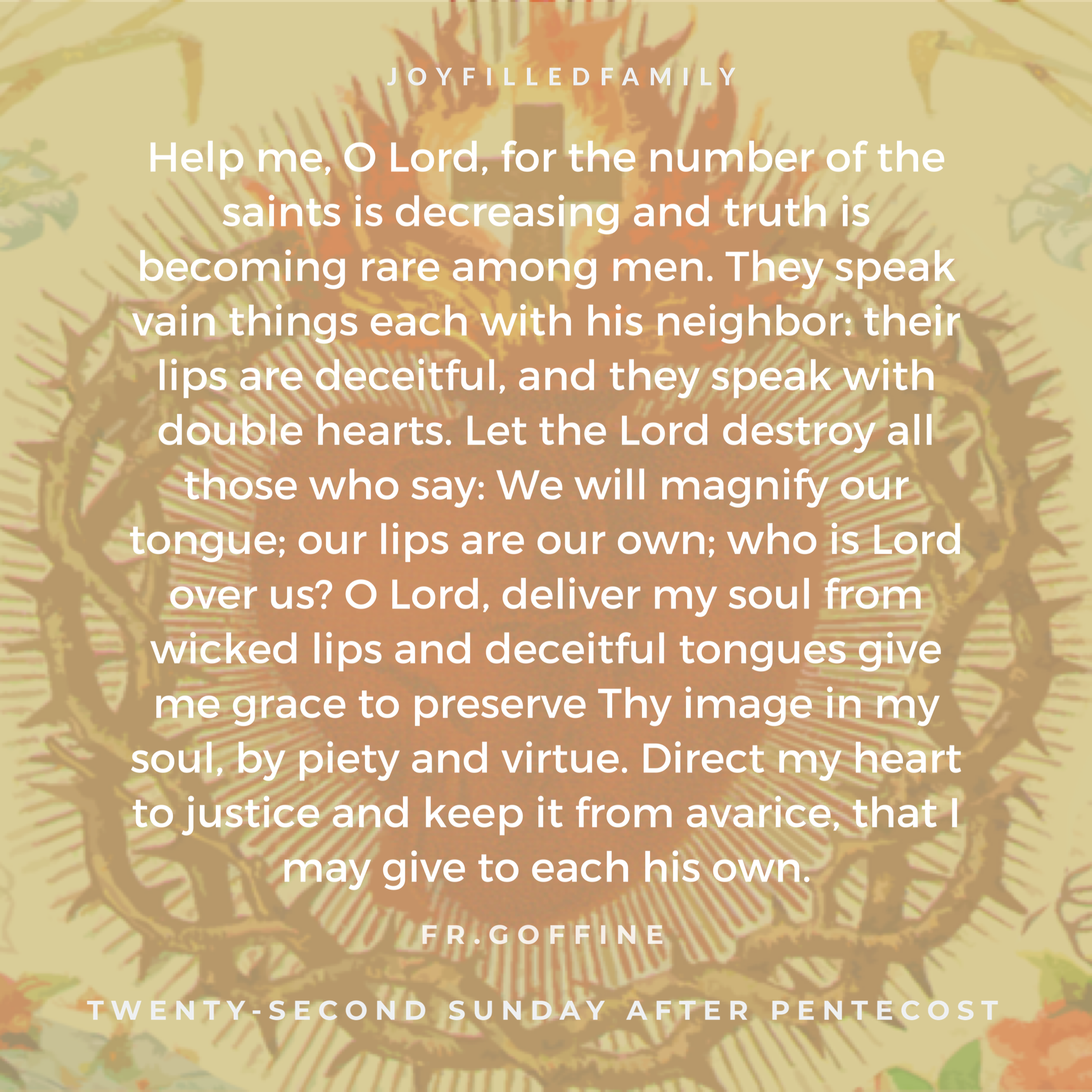The Liturgy for the Last Sunday of Pentecost features the warning, “He Who came in Mercy shall return in Justice.”
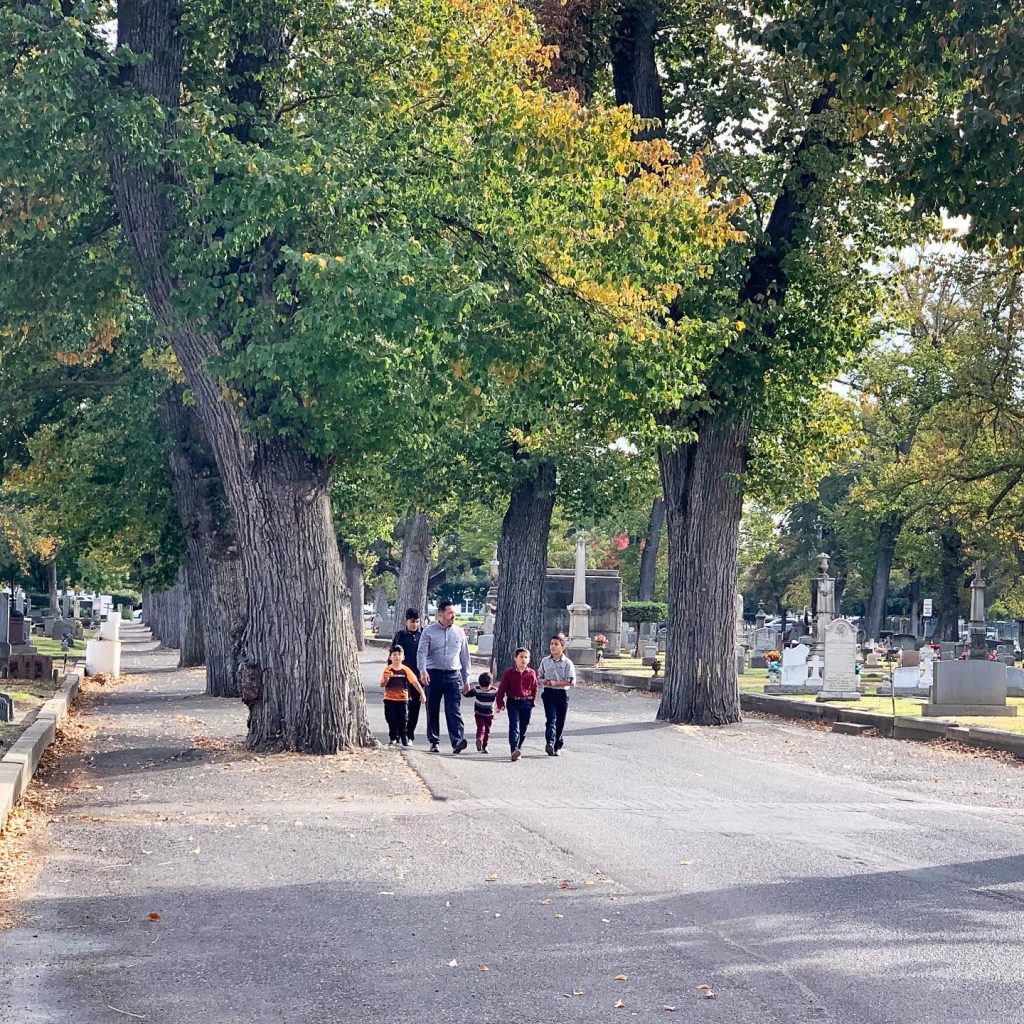
Here is an explanation of the Gospel (Matt. 24:15-35) from Fr. Leonard Goffine.
“When you shall see the abomination of desolation. The abomination of desolation of which Daniel (9:27) and Christ here speak, is the desecration of the temple and the city of Jerusalem by the rebellious Jews by perpetrating the most abominable vices, injustices and robberies, …, but principally by the pagan Romans by putting up their idols.
This destruction which was accomplished in the most fearful manner about forty years after the death of Christ, was foretold by Him according to the testimony of St. Luke (21:20).
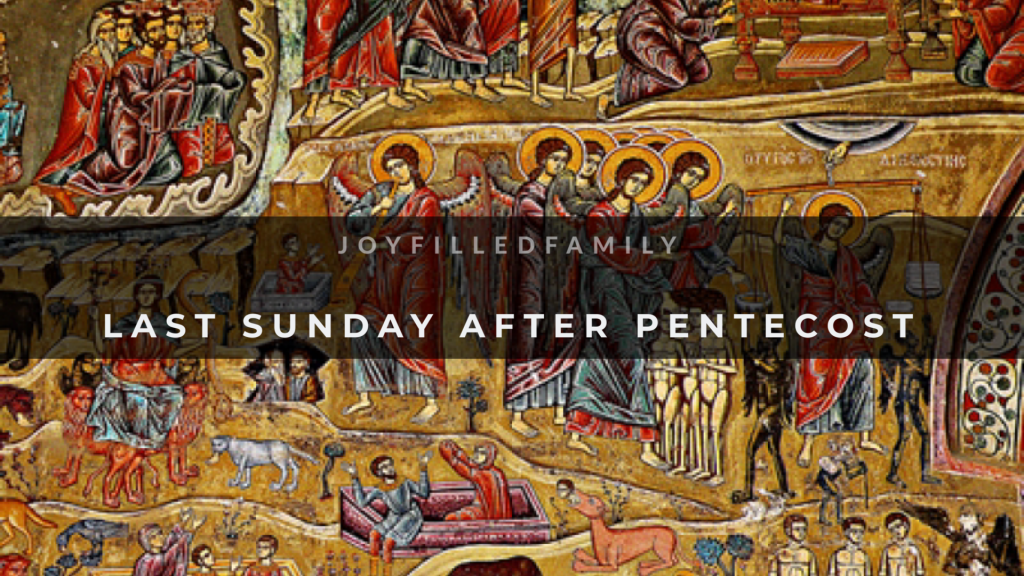
At the same time He speaks of the end of the world and of His coming to judgment, of which the desolation of Jerusalem was a figure.
Pray that your flight be not in the winter or on the Sabbath. Because, as St. Jerome says, the severe cold which reigns in the deserts and mountains would prevent the people from going thither to seek security, and because it was forbidden by the law for the Jews to travel on the Sabbath.
There shall rise false Christs and false prophets. According to the testimony of the Jewish historian Josephus, who was an eyewitness of the destruction of Jerusalem, Eleazar, John, Simon, …, were such false prophets who under the pretence of helping the Jews, brought them into still greater misfortunes; before the end of the world it will be Antichrist with his followers, whom St. Paul calls the man of sin and the son of perdition, (2 Thess. 2:3) on account of his diabolical malice and cruelty.
He will rise up, sit in the temple, proclaim himself God, and kill all who will not recognize him as such. His splendor, his promises and his false miracles will be such that even the holy and just will be in danger of being seduced, but for their sake God will shorten these days of persecution.
Wheresoever the body shall be, there shall the eagles also be gathered together. That is, where the wicked are, who have aimed at spiritual corruption, there punishment will overtake and destroy them.
This generation shall not pass till all these things be done. By these words Christ defines the time of the destruction of Jerusalem, and says that many of His hearers would live to see it, which also happened.
But when the end of the world will come, He says, not even the angels in heaven know. (Matt. 24:36).
Let us endeavor to be always ready by leading a holy life, for the coming of the divine Judge, and meditate often on the words of our divine Lord:
Heaven and earth shall pass, but my words shall not pass.”
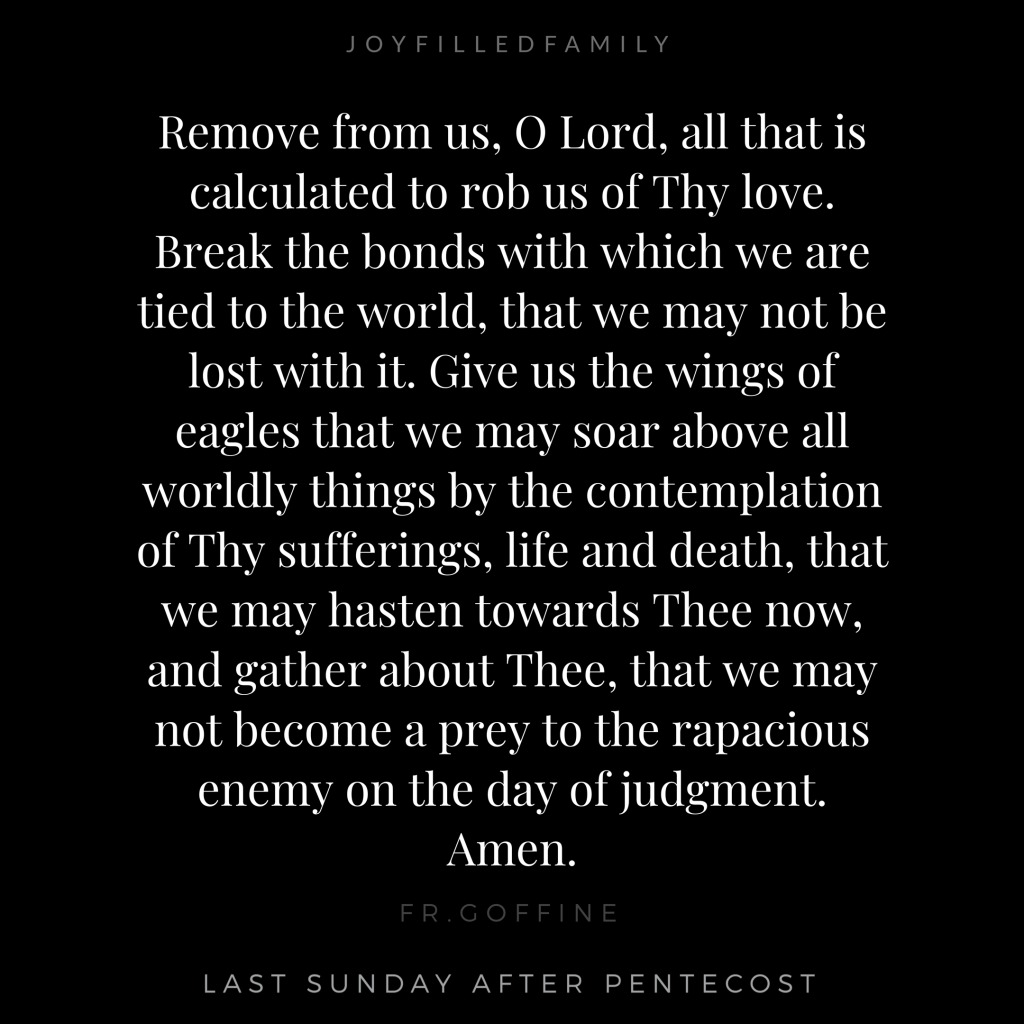
PRAYER Remove from us, O Lord, all that is calculated to rob us of Thy love. Break the bonds with which we are tied to the world, that we may not be lost with it. Give us the wings of eagles that we may soar above all worldly things by the contemplation of Thy sufferings, life and death, that we may hasten towards Thee now, and gather about Thee, that we may not become a prey to the rapacious enemy on the day of judgment. Amen.


